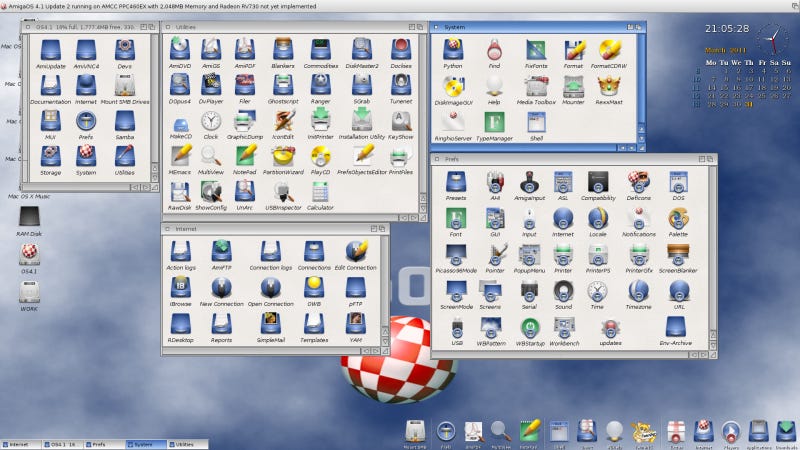

Linux, Alternative OS, & Retro Computing News - Oct 16, 2022
EpisodeOct 17, 202231m
It’s time for the important news of the week! And this week is a fun one!Haiku Beta 4 is “imminent”!The September “Haiku Activity Report” has a number of excellent updates in it… but this little tidbit at the bottom of the monthly report was especially exciting: Are we beta4 yet?Two blocking issues were resolved last month. The only ones that remain are “tasks” (i.e. not true issues, but things which must be changed before the next release, and should not be hard to do at all.)Thus it is my plan to start the release process imminently: hurrah! This should have happened months ago, but things were delayed as usual.That’s right. They “plan to start the release process imminently”. Awesome news.And absolutely perfect timing, as The Lunduke Journal Community is going to be doing a “Haiku Week” starting on November 9th. Looks like we’ll be able to use Beta 4 of Haiku for it! Huzzah!Serenity OS is 4 years oldOctober 10th marked the 4 year anniversary of the very first commit of Serenity OS.It is absolutely amazing what this crew of developers, led by Andreas Kling, has accomplished in those 4 years. To the point where they now have their own programming language, web browser, and an extraordinarily powerful (and oddly polished) desktop operating system.I’ve said it before, and I’ll say it again, Serenity is going places. I would not be surprised if this system begins to gain significant traction as a “daily driver” operating system very, very soon.Amiga OS 4.1 SDK Update ReleasedReady to blow your mind?Amiga OS is still in development.Like… the real, original Amiga OS.The company who has the rights to this side of Amiga OS (the legal history of Amiga is complicated and wild at this point) had released “AmigaOS 4.1 SDK 54.16”This updated SDK includes new versions of GCC (yes, Amiga has GCC as well), VBCC (another C compiler), Git and Subversion support, an updated SSL library, and a bunch of other stuff.If you’re looking at that list of SDK features and thinking to yourself, “Huh… so AmigaOS has modern development tools…”, you’d be right. In fact, porting many Linux and BSD applications to AmigaOS is quite doable with this SDK (considering the already fairly impressive POSIX compatibility of the Amiga). This is a public episode. If you'd like to discuss this with other subscribers or get access to bonus episodes, visit lunduke.substack.com/subscribe
Top comments